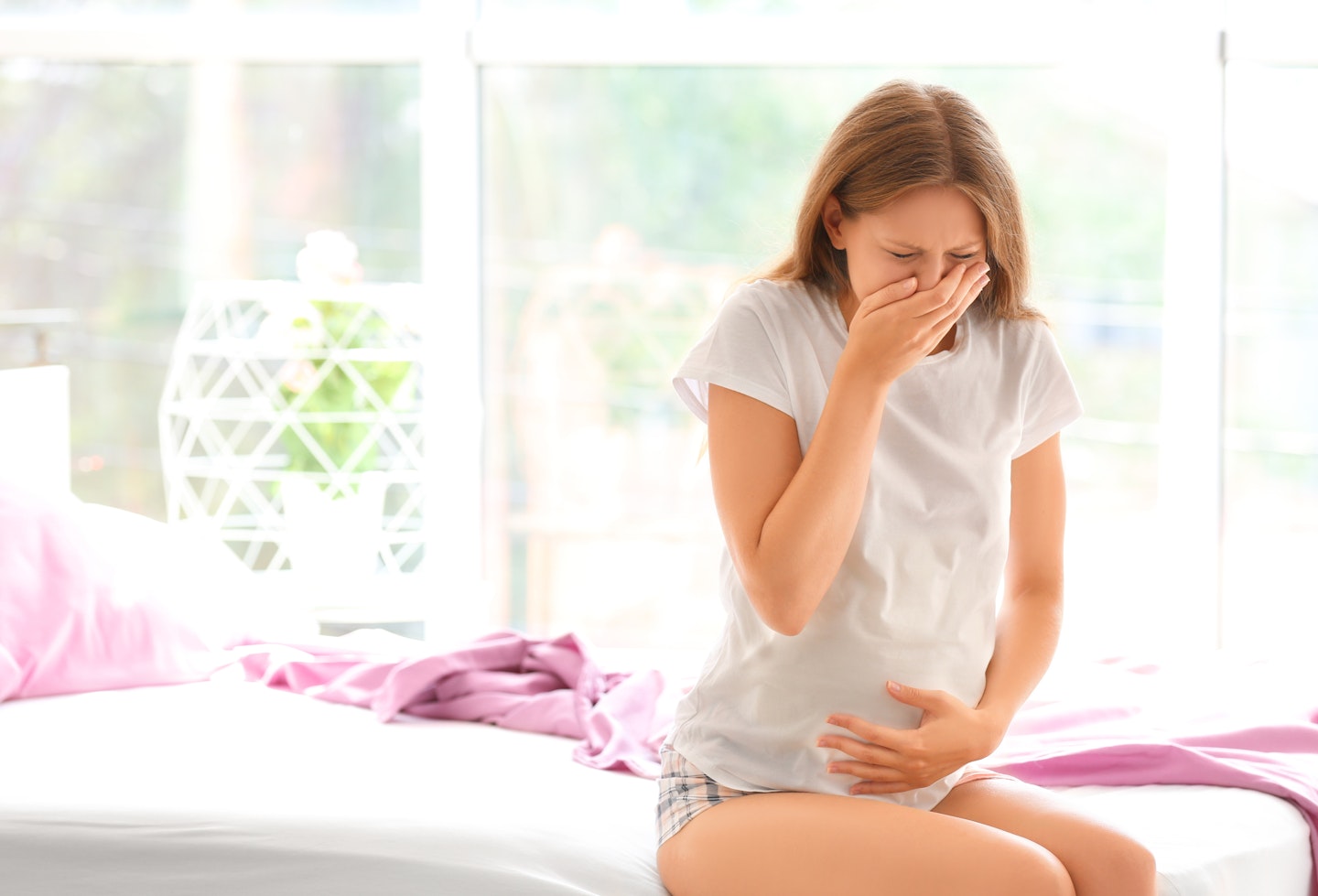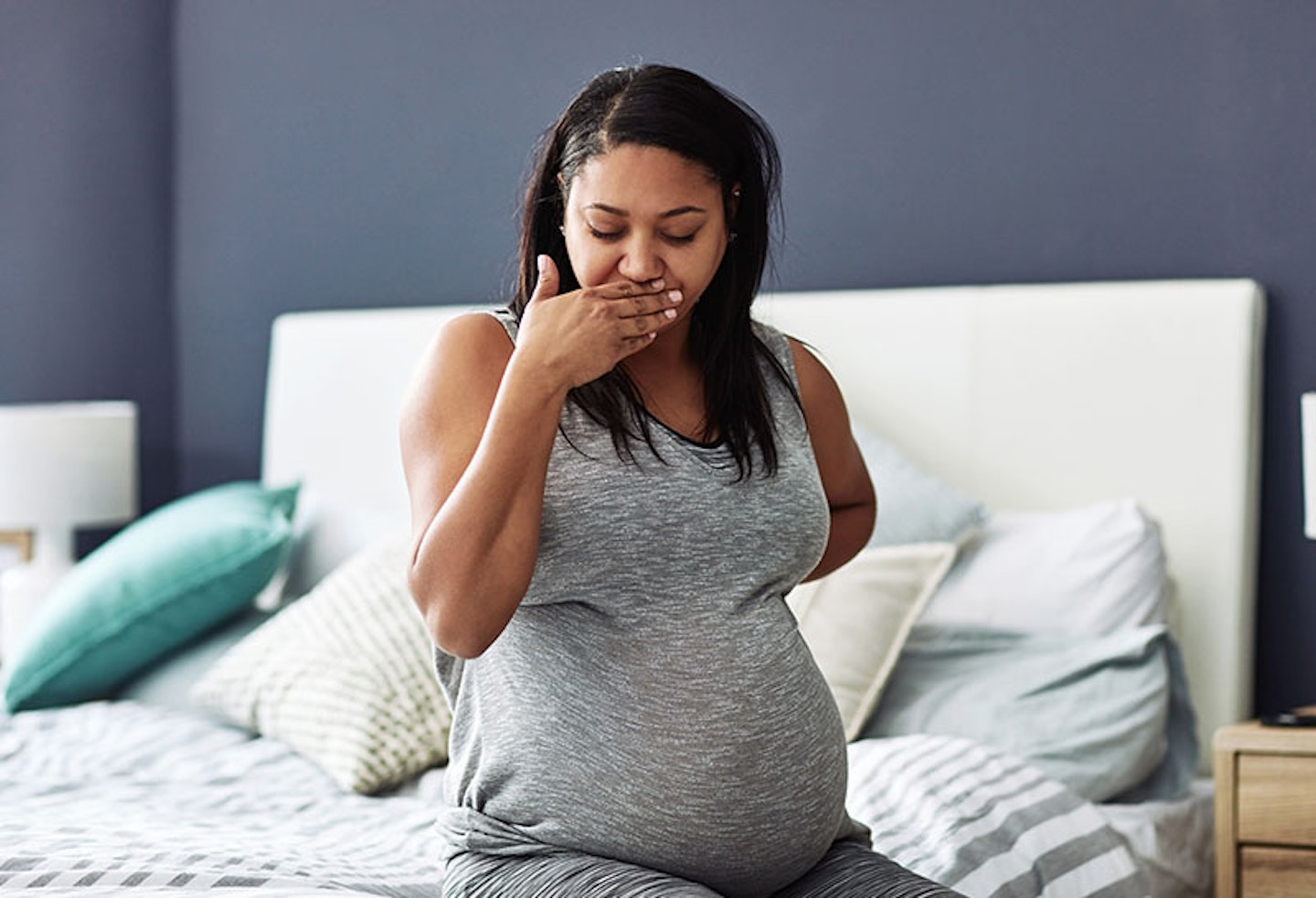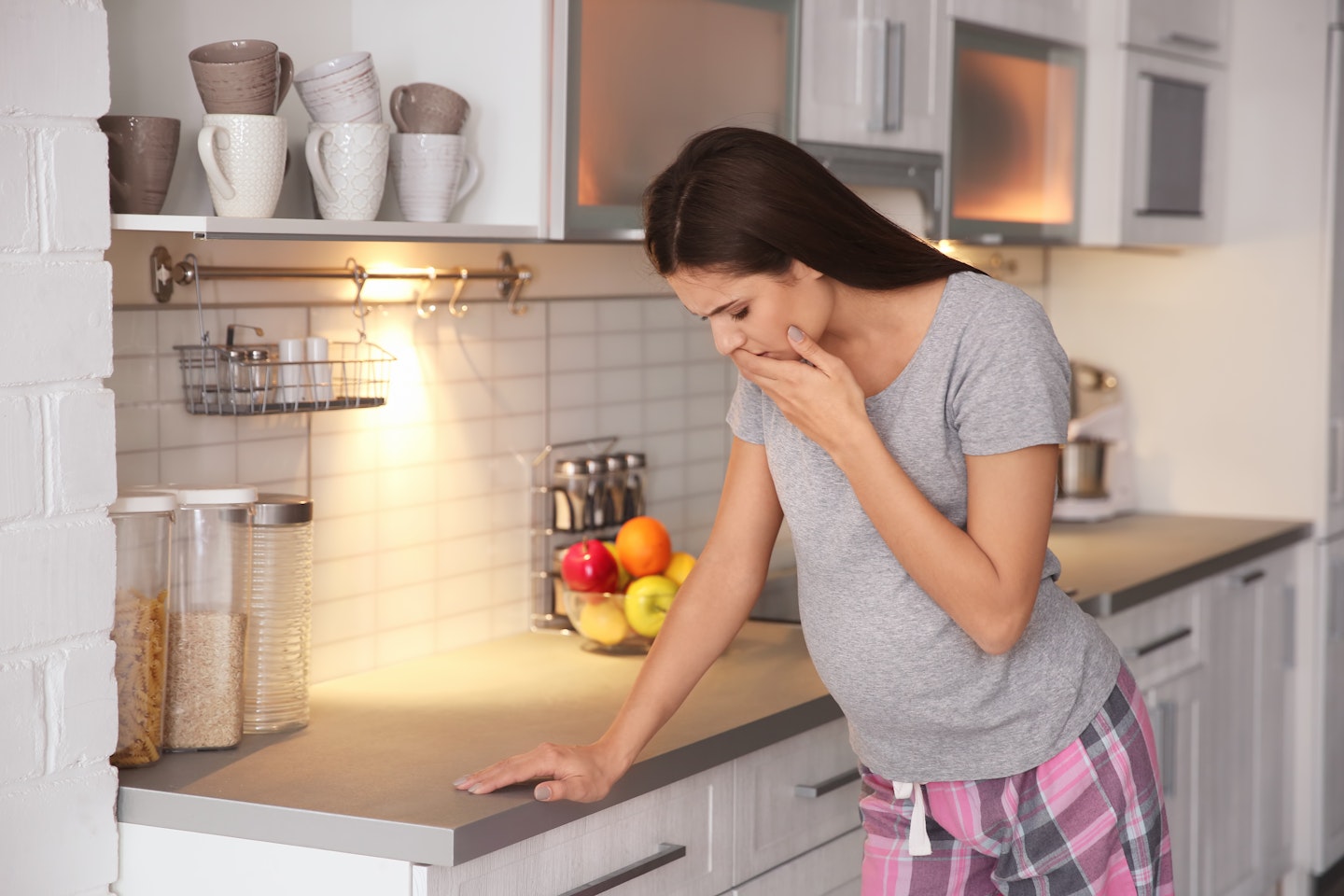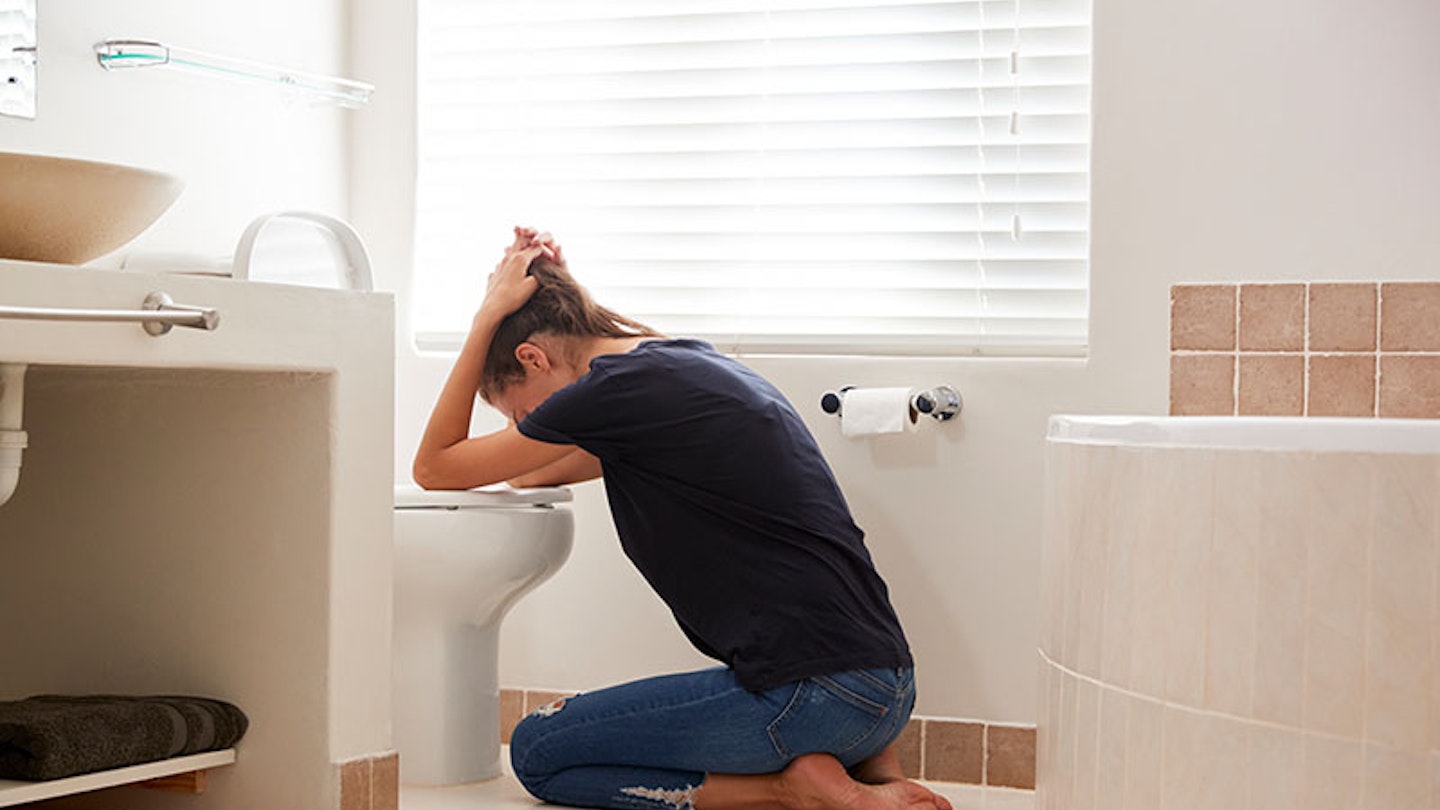Morning sickness and nausea is one of the main pregnancy side effects that we've all heard about (and we all fear!).
However, not all mums experience nausea and morning sickness in the same way or even at all (lucky devils!) and although it is unpleasant, it can be a sign that your pregnancy is ticking along nicely.
Although it's just another one of those unpleasant early pregnancy symptoms like an increase in wet watery vaginal discharge that most pregnant women experience, it's good to know how long the nausea will stick around for and also, exactly what the pesky symptom means.

When does morning sickness start in pregnancy?
Morning sickness usually starts during the first trimester at about five or six weeks pregnant. It is often one of the first indicators of pregnancy. Morning sickness can range from a general feeling of nausea to vomiting and in more severe cases, hyperemesis gravidarum. If you cannot keep food down and are suffering from severe vomiting, it is best you visit your doctor to discuss potential treatment.
Contrary to what the name suggests, morning sickness can occur at any time of the day but pregnant women often find it to be worse first thing in the morning before they have eaten. According to the NHS morning sickness "doesn't put your baby at any increased risk, and usually clears up by weeks 16 to 20 of your pregnancy", around the start of the second trimester.
If you are suffering from morning sickness there are some remedies mums swear by. You can also try to eat small frequent meals, eat something plain like toast before getting out of bed and to drink water regularly.
When does morning sickness start with twins?
As with single child pregnancies, morning sickness for women pregnant with twins will start around weeks five or six however some believe that early morning sickness or more severe morning sickness implies twins or multiple babies. However, the evidence behind this is unclear and is more anecdotal.
When does morning sickness end?

For most mums-to-be, morning sickness lasts from week 6 to week 12and is at its worst during weeks 8 and10. Most women find that their morning sickness calms down once they begin their second trimester. If you're continuing to experience sickness after this time, you should call your doctor to check it isn't something more serious such as hyperemesis gravidarum - a condition which affects around 0.5 to 2 per cent of pregnant women and causes severe and persistent vomiting.
While it's named 'morning' sickness, it doesn't just affect us in the morning (unfortunately). Morning sickness can affect women at any point in the day or even all day long in some cases.
Morning sickness symptoms
There are many symptoms of morning sickness that pregnant women can experience.
-
A nauseous feeling similar to car sickness or seasickness.
-
Aversions to certain smells that seem very powerful, they can make you feel physically sick.
-
Feelings of sickness can often be followed by hunger.
-
Nausea after eating.
All this nausea can often lead to vomiting. Find out more about thesymptoms of morning sickness here.
What does early morning sickness mean?
If you find you suffer from morning sickness before five weeks, this is normal. Some women suffer from nausea very early on during pregnancy although it is not usually accompanied by vomiting. At as early as three weeksor even two weeks pregnant certain strong smells (like perfume or beauty products) or strong smelling foods may trigger nausea. If you have had multiple pregnancies and previously experienced morning sickness, you may notice nausea as a symptom earlier than other women.

What does it mean if I don't have morning sickness?
If you don't have morning sickness, don't worry, it is not a problem and is completely normal. We believe morning sickness occurs due to changes in hormone levels with the large quantities of hormones produced during pregnancy but other factors such as "low blood sugar, increased stomach acid, stress and fatigue can also contribute" explain Pampers.
Some women may suffer from nausea but no vomiting or no symptoms at all. If you avoid all morning sickness and nausea, count yourself lucky. At least you have dodged one of the many less than pleasant pregnancy side effects.
Morning sickness remedies recommended by real-mums
We asked our #mumtribe community of mums on Facebook what helped their morning sickness and here are some of our favourite answers:
Katie Gleeson: "I swear by the seasick travel bands, they helped me on both my pregnancies, I recommend them to everyone."
Fiona Clewer: "I started with morning sickness at week 9 and was still being sick a couple of hours after having my baby boy and the only thing that ever made any difference (and only worked sometimes) was sipping ginger beer. Even water made me vomit."
Patrice McDonald: "Dry cream crackers helped...plus crystallised ginger (easier to cope with than raw ginger). I later asked the GP for anti-sickness tablets, but in the end they prescribed antacids which really helped (much better than just drinking Gaviscon by the bottle)!"
Rachel Train: "It’s trial and error. I had sickness with all my 3 pregnancies and I found eating plain food regularly helped me. Marmite sandwiches on white bread was my saviour from starvation, and plain baked potatoes, cream crackers and rich tea biscuits. Sucking on mints helped with nausea. And I found a tummy setting tea morning sickness tea that did actually help!"
Holly Ashton: "I was sick for months and nothing really helped. Even anti sickness tablets from the Drs! I tried all the tricks but the only thing that seemed to keep it at bay at all was eating a little and often. Including having biscuits and dry cornflakes by my bed so I could munch through the night too!"
Tanya Harrison: "I had morning sickness when we first moved into our house. Our first parcel to arrive was a giant box of 48 ham and mustard flavour crisps which my husband thought was a mistake! It was the only thing that would cure my morning sickness!"
Laura Davies: "Water from the fridge with chopped up lemons in it and those butterscotch sugar-free sweets you can get from Aldi. Lifesaving!"
